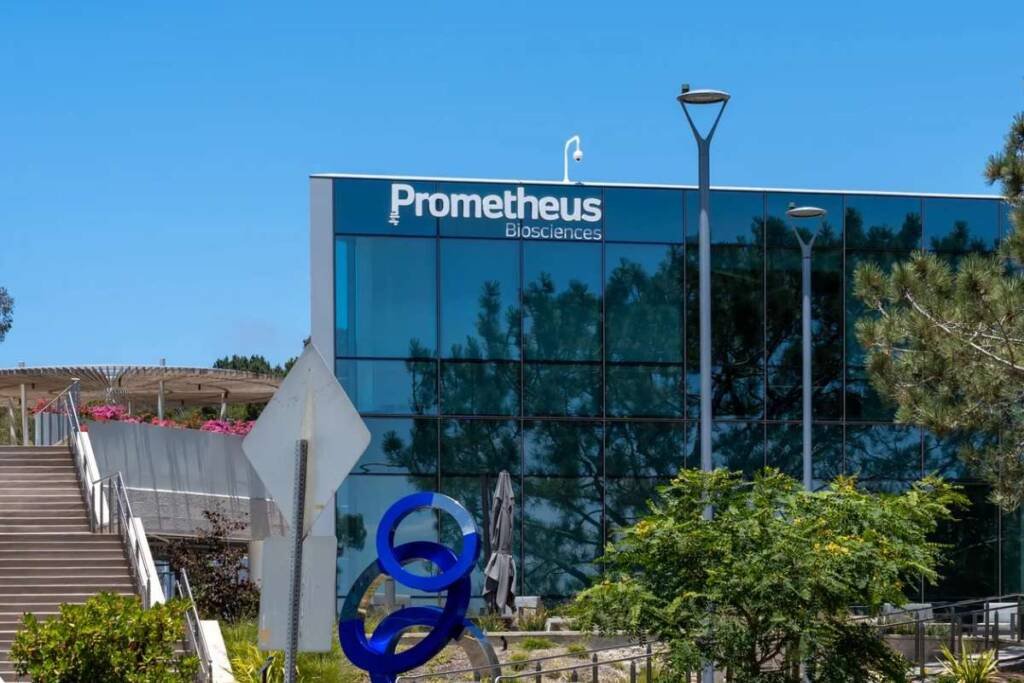Earlier this year, Merck’s acquisition of Prometheus Biosciences for $10.8 billion provided the New Jersey company with a much-needed diversification in its portfolio, reducing its overwhelming reliance on the cancer drug Keytruda.
Despite this move, Merck’s appetite for mergers and acquisitions (M&A) remains unsatisfied, as mentioned during the second-quarter earnings call. The company is focused on expanding its business before Keytruda’s exclusivity ends in 2028. However, another significant date to consider is 2026 when the Inflation Reduction Act (IRA) will enable Medicare to negotiate drug prices for its most significant expenditures, with Keytruda being a top candidate.
“We continue to have a priority to do business development, so you should not necessarily expect a slowdown. If and when assets that bring important scientific opportunities present themselves—where we see an alignment with strategy and where we can see value creation—we have the capacity and we will be willing to act on those.”
– Rob Davis, Chairman and chief executive officer, Merck
Regarding the negotiation measure, Merck has expressed concerns about its constitutionality, and the company is among four pharmaceutical firms that have filed lawsuits against the government, challenging the legality of the IRA.
On Tuesday, Davis called the negotiation measure “unconstitutional price setting.” The company is one of four that have filed lawsuits against the government, challenging the legality of the IRA.
“We’ll take it through District Court and if need be, Circuit Court and ultimately to the Supreme Court. This will take a while to play out. What I do think is highly likely is that we will be able to see this result by the time we get into the 2026 timeframe.”
– Rob Davis, Chairman and chief executive officer, Merck
Despite the ongoing legal battle, Merck recognizes that it will eventually have to address the potential loss of Keytruda revenues, making M&A a viable solution, given the company’s financial strength.
Merck has bolstered its cash position in the second quarter, largely due to Keytruda sales. However, the company’s momentum has experienced a slowdown due to the lack of new product launches and continued pricing challenges, particularly in Europe.
Edward Jones analyst John Boylan believes Merck is actively seeking to utilize its strong cash position for acquisitions to drive growth. Edward Jones still expects sales of Keytruda to reach $29 billion this year, up from $20 billion in 2022.
Sales of Keytruda are expected to reach $29 billion this year, a substantial increase from $20 billion in 2022. Additionally, Merck’s HPV vaccine, Gardasil, has performed impressively, generating $2.46 billion in the second quarter, up 53% from the same period last year. However, Merck anticipates a decline in shipments to China in the second half of the year, which may impact Gardasil’s future performance.
Merck’s revenue for the quarter exceeded analyst expectations, reaching $15.04 billion. It marked the eighth consecutive quarter of revenue beats for the company. Consequently, Merck raised its revenue guidance for 2023 to a new range of $58.6 billion to $59.6 billion, up from the previous projection of $57.7 billion to $58.9 billion.
“Keytruda’s growth has been exceptional in recent quarters, outperforming our expectations, driven in part by robust uptake of recently launched early-stage indications. We continue to expect strong year-over-year growth of Keytruda but not quite at the levels experienced in recent quarters.”
– Caroline Litchfield, Chief financial officer, Merck
Notably, despite a 6% increase in sales in Merck’s pharmaceutical sector, the performance of COVID oral antiviral Lagevrio declined significantly from $1.18 billion in the second quarter of last year to $203 million in the most recent quarter.





























